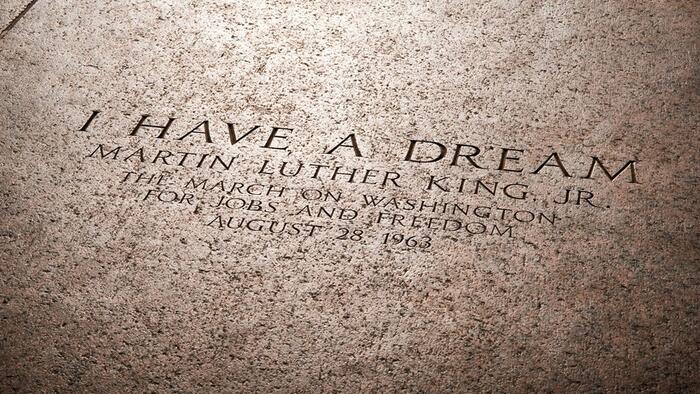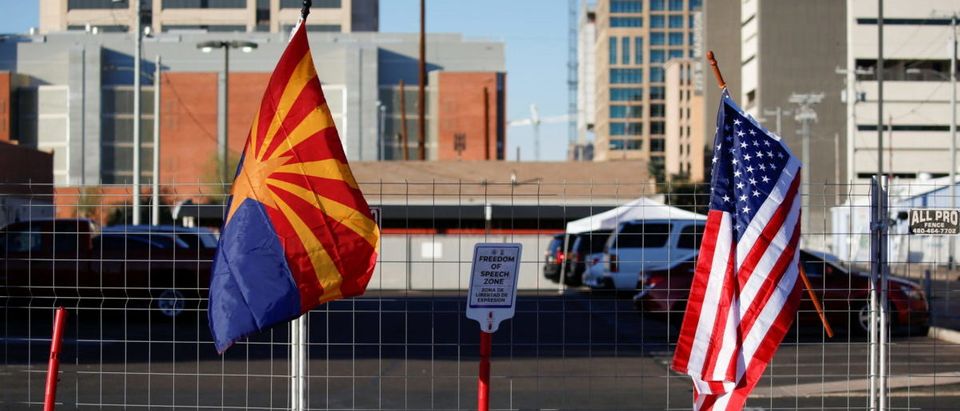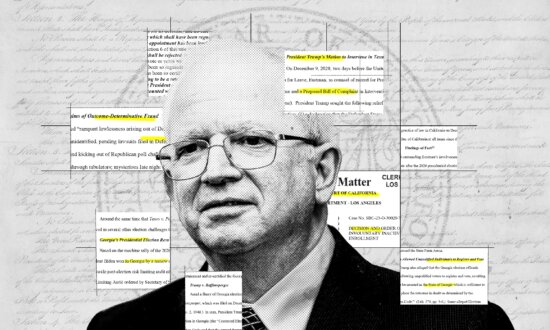Authored by Christopher Rufo via City-Journal.org,
A New Civil Rights Agenda
The only hope for a diverse nation is a regime of colorblind equality…
This year’s Martin Luther King, Jr. Day was marked by contentious debate about the state of civil rights law in America.
On the left, as always, the failure to achieve equal outcomes along racial lines requires greater state intervention.
On the right, a different critique has gained traction, most notably in Christopher Caldwell’s Age of Entitlement and Richard Hanania’s The Origins of Woke, books arguing that American civil rights law has metastasized into a “second Constitution” that has led inexorably to left-wing racialism as the nation’s new orthodoxy.
This critique has merit.
The modern civil rights regime has assumed unprecedented power to reshape public and private life, regulating not only instances of outright discrimination but also the minutiae of thought, behavior, speech, and association. The Civil Rights Act of 1964 appealed to the noble principle of equality, but over time the legal structure that it helped establish has metamorphized into an intrusive “diversity and inclusion” bureaucracy that discriminates against supposed “oppressor” groups—namely whites and Asians—and imposes left-wing ideology.
The question is what to do about it.
Libertarians have long argued that the Civil Rights Act compromises core freedoms of speech and association to such a degree that only repealing the law can restore them.
Another faction argues that the solution to minoritarian identity politics is majoritarian identity politics—that is, if the legal regime has become a racial spoils system, then Americans of European descent must develop “white racial consciousness” and fight for their share.
Both these approaches are misguided.
Some conservatives seem to have forgotten that the Civil Rights Act was a response to state-sanctioned racial injustice in the United States and that, at its best, the civil rights movement appealed to the ideals of the Declaration of Independence and the language of the Fourteenth Amendment. The libertarian proposal for abolishing the Civil Rights Act, like most libertarian proposals, is unfeasible. The white identity proposal, which I have previously criticized, is a recipe for permanent racial division, more akin to “prison gang politics” than republican virtue.
Happily, another avenue is open to us: reform.
The ideological capture of the Civil Rights Act is neither fixed nor inevitable. Rather than argue for its abolition, Americans concerned about the excesses of the DEI bureaucracy should appeal to higher principles and demand that our civil rights law conform to the standard of colorblind equality. The answer to left-wing racialism is not right-wing racialism—it is the equal treatment of individuals under law, according to their talents and virtues, rather than their ancestry and anatomy. This policy does not require radical innovations. Embracing the philosophy of the American Founding—with its emphasis on natural rights and liberties—will suffice.
What would this new civil rights agenda look like in practice?
-
First, reformers should outlaw affirmative action and racial preferences of any kind. Both policies are euphemisms for racial discrimination. The next president should rescind Lyndon Johnson’s 1965 Executive Order 11246, which established “affirmative action” and marked the initial deviation from the standard of colorblind equality. Congress should strengthen this principle by amending the language of the Civil Rights Act to make indisputably clear that the law will not permit state-sanctioned discrimination toward any racial group, whether in the minority or the majority.
-
Second, reformers must eliminate the “disparate impact” provisions in the Civil Rights Act of 1991 and overturn Griggs v. Duke Power Co., both of which have entrenched the doctrine that disparate group outcomes are de facto evidence of racial discrimination. This is a preposterous standard: a system of equal rights necessarily means unequal outcomes, as different groups have different preferences, talents, and capacities. Under a just system, the criterion for assessing biased treatment would not be disparate outcomes but specific, concrete discrimination, driven by animus. Much as libel law requires actual malice, anti-discrimination law should require proof that an individual or institution sought to discriminate. The change in standard would have an immediate effect, reducing the number of frivolous lawsuits and changing the incentives that have driven institutions toward racialist ideology as a defensive strategy.
-
Third, legislators should abolish the DEI bureaucracies in all American institutions, which openly discriminate against disfavored racial groups, impose ideological orthodoxies on American citizens, and restrict freedoms of speech and association. In addition, federal legislators should radically reduce the size of the federal departments of civil rights enforcement. Bureaucracies are designed to discover—or, if the supply is low, fabricate—whatever transgression they are tasked with eliminating. While a large civil rights enforcement apparatus may have been necessary to enforce non-discrimination law in the past, it is no longer necessary. Americans are a tolerant, cooperative people; a “night watchman” civil rights state and a competent courts system would be sufficient to resolve disputes and ensure compliance with the law.
The goal of these reforms is finally to realize a regime of full colorblind equality. The principle, first promised by the Declaration and supported today by a large majority of Americans, would mean that the state would treat all Americans equally, regardless of ancestry, and leave as much discretion as possible to individuals to determine their own futures, without the government imposing or requiring racial favoritism of any kind. Rather than pit ourselves against one another, we should aspire to a higher standard that subordinates racial faction to a broader national identity.
Americans do not have to accept the bigotries of the past or the present. In a vast and diverse country, colorblind equality is the only way forward.
* * *
Christopher F. Rufo is a senior fellow at the Manhattan Institute, a contributing editor of City Journal, and the author of America’s Cultural Revolution.
Loading…












